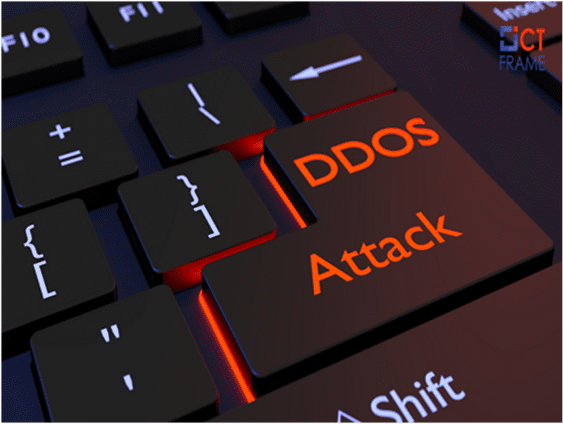22 April 2021, Kathmandu
With every step that our world takes into the digital age, the risk of cyber attack becomes a more and more daunting threat. Of the many types of cyberattacks, Distributed Denial of Service (DDoS) is receiving increased attention in recent years—and with good reason. This type of cyber attack is relatively easy for bad actors to initiate, and it can cause immediate, severe, and long-lasting damage to the victimized network
Simply put, a DDoS attack is an attempt to make an online service unavailable by overwhelming it with traffic from multiple sources. When a DDoS attack occurs, recovery can take anywhere from a few hours to a few weeks, and in some cases, systems are never fully restored to their original state.
Potential outcomes from DDoS attacks include:
- Interruption of operational activities
- Financial impacts due to lost data, productivity, and revenue
- Reputation damage and decreased ability for funding
- Additional fraud activity – Many cybercriminals use DDoS simply as a smokescreen so that they can obtain access to the information they’re really trying to get their hands on.
DDoS attackers do not discriminate when it comes to the types of businesses they go after, meaning your business is not immune to this type of activity.
How to Protect Your Business from DDoS Attacks
DDoS attackers can attack businesses at any time. No matter what industry you’re in, keep the following three recommendations in mind to protect your business from DDoS attacks.
Determine Your Security Needs and Create a Defense Strategy
To ensure your business is protected from DDoS attacks, you must develop an IT security policy. It’s important that your business creates a comprehensive solution that can detect any suspicious activity. Having a step-by-step plan of how to prevent and mitigate these attacks can help to keep your systems safe.
Once your strategy is developed, be sure to share it with all company personnel so that they are also taking the appropriate steps to ensure your network remains secure.
Keep Your Security Safeguards Up-To-Date
It’s important that all software, hardware, and other security safeguards are up-to-date to best defend your system from DDoS attacks, as well as other cyber attacks.
While keeping your system current can act as the first line of defense, you need to be wary of the increasing use of personal devices on your premises, whether they be employee laptops or guest cell phones, that can interfere with your security. Implement BYOD (bring your own device) guidelines that can help mitigate any risks brought on by external devices.
Strict password policies are also paramount in keeping your systems secure. Consider the following when developing all business-related passwords:
- Use a unique password for each account
- Use a mix of letters, numbers, and symbols
- Don’t include personal information or common words
- Regularly change passwords
Bring in Network Security Specialists
Focusing on your business’ network security is a full-time job that many organizations don’t have the resources or budget to employ. As an alternative, businesses are outsourcing this responsibility to external network security specialists who have extensive knowledge and experience with cybersecurity and can give network security the time and attention it needs.











